Ildikó Bánsági
Birth : 1947-10-19, Budapest, Hungary

Set in 1983, behind the Iron Curtain of Eastern Europe in Budapest, the film follows Frank, the charismatic singer of a banned punk band that carries the voice of their generation against a totalitarian regime. Taken to the police psychiatric hospital in an attempt to silence him, Frank will sacrifice everything to resist.

Etus

Elli
A collage of human fates, where all shown characters are suffering from panic attacks. Stories like a policeman who is willing to come out or a young business woman who achieved her life goals too early.
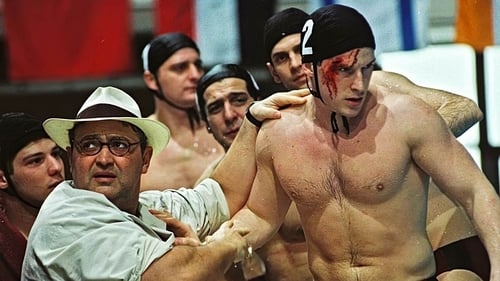
Karcsi anyja
Children of Glory will commemorate Hungary's heroic Revolution of 1956, and takes place in Budapest and at the Melbourne Olympic Games in October and November of that year. While Soviet tanks were destroying Hungary, the Hungarian water polo team was winning over the Soviets in the Olympic pool in Melbourne, in what has been described as the bloodiest water polo match in history.

Áltörök nő
Magyar vándor is a 2004 Hungarian action comedy film directed by Gábor Herendi and starring Károly Gesztesi, János Gyuriska and Gyula Bodrogi

Sári
The film shows the times directly before and after the revolution of 1956 in a Rosehill villa and its garden, guarded by the state security, from the perspective of a powerful party functionary’s children living there. The children witness a lot of things they do not understand, mysterious things, which they interpret in their own way.

Lili
Autumn 1944. Yellow star, ghettos, Arrow Cross terror. The inhabitants of Hungary's capital, Budapest, await the tragic fulfilment of their fate with helpless resignation. However, above one of the city's villas, once a week in the evening the stars of hope sparkle, if only for a few minutes. This short time gives fresh heart to those hiding here and kindles hope in their tortured souls to live for another day. This mysterious power is none other than a beautiful song that can be heard at such times from the villa's tower room.

(segment "Ten Minutes After")
Collection of short films the summaries of which include; a foreign man moving to Italy, getting married and having a child; a four split scene short involving plot-less images of old people with television sets for heads, a beautiful woman having sex, and overall confusion; and an old man reminiscing over his youth.

Buda, 1851. Jeromos Hétszáz, a puppet maker living in Óbuda, and his wife, Óguszta, a childless couple, have given refuge to the orphans of those fallen in the war of liberty or jailed, most recently to Pál Penyige and Borbála Derelye. Overjoyed when the chief of police orders fifty straw puppets, they are distressed on learning that the puppets will be publicly hanged in effigy of Lajos Kossuth and the leaders of the war of liberty.

A feleség
György Fehèr’s aim was to “make a film which is similar to the last salvaged print of a long lost film”. The passions he investigates are centred on primeval fears and cravings and a sense of inescapable doom. Shot in powerful black and white with excellent central performances.

Körzeti orvosnő
It is 1989, the year of the demise of socialism in eastern Europe. Nevertheless, the one theme of Junk Movie does not refer to this historical moment of high ideals, quite the contrary, the wild, burlesque of a motif-mozaic seems merely to stick it’s tongue out at the arrogant players of politics who have their heads stuck in the clouds. The film rudely points out the mystery and unapproachability surrounding the every-day existence of politics. The scene is a greasy, falling-down block of a pub called the Gólya and its immediate surroundings.

The story of a love-triangle is recounted through Anitas memories and jagged monologue. Anita is tremendously naive and in love, Laci is a petty small-town gangster with great powers of persuasion and the secret lover of Szilvi. The three of them leave for Vienna, where Laci sells off the two girls to a peep-show for some small money.

When Hungary's newest prime minister is shot and killed at a reception, the resulting investigation is necessarily swift and comprehensive. This compelling political thriller uncovers two prime suspects: the woman who guns the leader down, and a man who was friends with both the prime minister and his murderer. Using video surveillance footage, as well as other more artful and symbolic imagery, the noted "visualist" director Miklos Jancso, who is known for his craft in getting his points across non-verbally, combines fantasy and reality in a highly ironic manner.
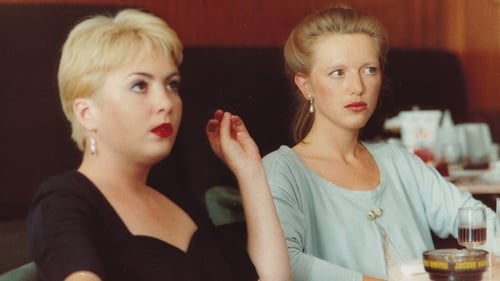
Emma (voice)
The story shows Emma's and Böbe's fight for survival, for keeping their position in society which they achieved with hard work in the previous regime. They don't want to lose their place and become village girls again.

Celebrated Swedish opera star Karin Anderson is slated to appear in an internationally-telecast production of Tannhauser. Ms. Anderson balks at the notion of working with obscure Hungarian conductor Zoltan Szanto. The much-anticipated production may never get off the ground, thanks to labor-management difficulties, intramural jealousies, and clashing egos. Amidst all this chaos, the mismatched Anderson and Szanto fall in love.
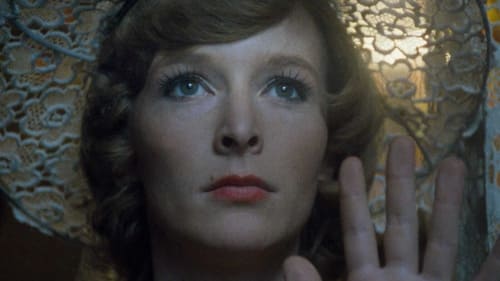
Ildi
This story follows a young student, who is orphaned as she grows to adulthood in the shadow of the 1956 Hungarian uprising. Coming from the Communist intelligentsia, she sees her friends and family react differently. Her lover, a married factory manager, supports the patriots and later assists fellow workers in staging a strike. Meanwhile her sister and others express anger at being forced from their homes during the revolution and continue to express a hatred for the rebels afterwards. But in the end they realize that for all people, real life is not possible after the revolt and its brutal suppression by the Soviets and their collaborators.

Márta
Jancso emphasizes highly evocative and ambiguous imagery over dialog or exposition. Here he seems primarily interested in showing the painful, stunted lives of Hungary's intellectuals, who are shown as remaining silent and ineffectual during various political crises. There are several action sequences involving chases and shootouts, but since there's no clear narrative we're not sure how they relate to each other or to anything else. The film is, however, visually fascinating, with shots of police cars, horses, and naked bodies juxtaposed and extensive use of multiple video imagery.

Orosztanárnõ
In the country reformatory school both the teacher and the children are trapped by the circumstances. From among the pupils excels Sanyi, who cannot accept the fact that his mother does not love him and he keeps on escaping after her. From among the teachers it is Mr. Csőrös who distinguishes himself by listening to the children, looking for those who escaped, Sanyi feels affection to him.

Apafiné, Bornemissza Anna
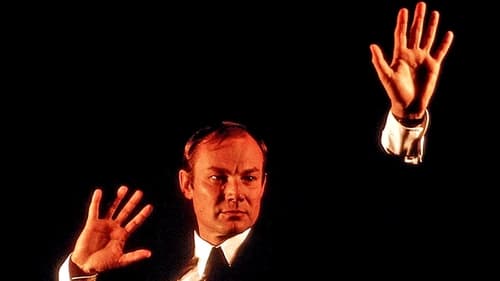
Sister Betty
A man's story parallels Hitler's rise. Austrian Klaus Schneider, wounded in World War I, recovers in the care of Dr. Emil Bettleheim. Bettleheim discovers that Schneider possesses powers of empathy and of clairvoyance, such that could aid suicidal patients. After the war, with one friend as his manager and another as his lover, Schneider changes his name to Eric Jan Hanussen and goes to Berlin, as a hypnotist and clairvoyant performing in halls and theaters. He always speaks the truth, which brings him to the attention of powerful Nazis. He predicts their rise (good propaganda for them) and their violence (not so good). He's in pain and at risk. What is Hanussen's future?

Rózsika
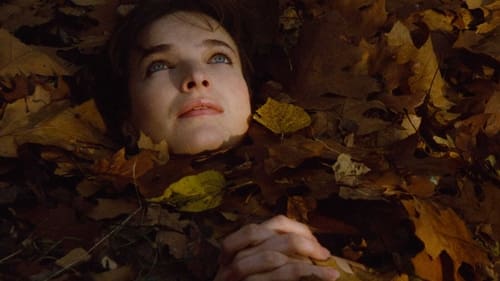
Ildi
A continuation of "Diary for My Children," the film picks up in 1950, when Juli, the diarist, is 18 and determined to become a movie director.

Gréti (voice)
Gréti, a German shepherd, searches for her missing puppy.

Even without a clock, the watch-maker of the small country town always knows the exact time to the second, and for this reason he came to be called Mr. Clock. His wife left him, and he only lives for his work. He is just engaged in repairing the tower clock when his wife returns and the German troops appear.

Hilda

Kondor mama
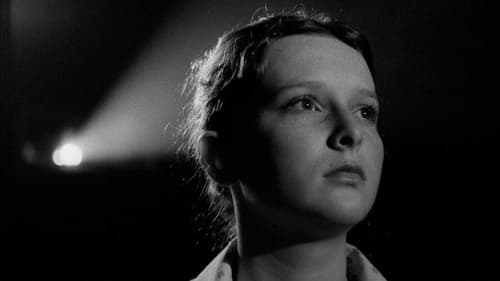
Juli's mother
A semi-autobiographical story of a young woman's life in Budapest under Stalin.

Mici, a pretty young girl is a selected swimmer. Laci, her trainer looks after her jealously, mainly because of her condition.
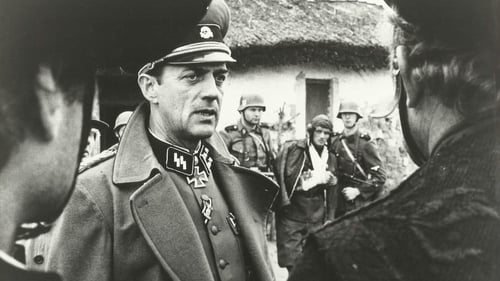
Klara
This movie is about the love and protection of a man from another culture for the lowly horsemen of the the plains in Hungary during World War II.
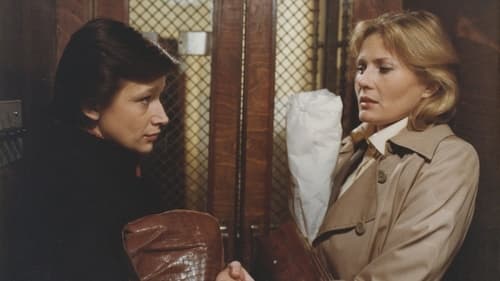
Szalánczky Éva (voice)
Political and sexual repression in Hungary, just after the revolution of 1956. In 1958, the body of Eva Szalanczky, a political journalist, is discovered near the border. Her friend Livia is in hospital with a broken neck; Livia's husband, Donci, is under arrest. In a flashback to the year before, we see what leads up to the tragedy. Eva gets a job as a writer. She meets Livia and is attracted to her. Livia feels much the same, but as a married woman, has doubts and hesitations. In their work, they (and Eva in particular) bang up against the limits of telling political truths; in private, they confront the limits of living out sexual and emotional truth.
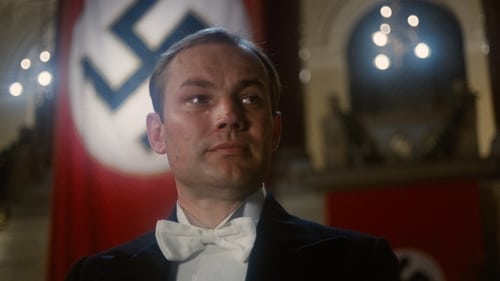
Nicoletta von Niebuhr
A German stage actor finds unexpected success and mixed blessings in the popularity of his performance in a Faustian play as the Nazis take power in pre-WWII Germany. As his associates and friends flee or are ground under by the Nazi terror, the popularity of his character supercedes his own existence until he finds that his best performance is keeping up appearances for his Nazi patrons.
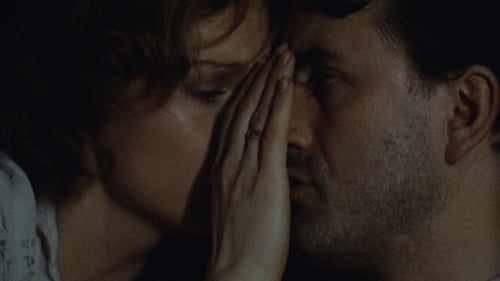
Kata
Janos and Kata are thrown together during the Second World War and forced to pose as husband and wife to hide from the Nazis. The intensity and suffocating intimacy of their new relationship and the circumstances in which they find themselves, forces them to confront past prejudices and assumptions and challenge what they truly believe.

Az asszony
The man is promoted and given a new assignment at his work-place. At home, he stares at a video-cassette: it portrays his wife's face in countless versions, she is sometimes simply beautiful, then unfathomable, but it is mostly a sad, closed, lonely face.

The subject-matter of this comedy is age-old: that of the schizophrenic soul. Papa would have liked boy twins years ago, but her wife gave birth to a single child weighing six kilograms. He would like to dampen his feeling of emptiness by having the boy registered both as Péter and Pál.
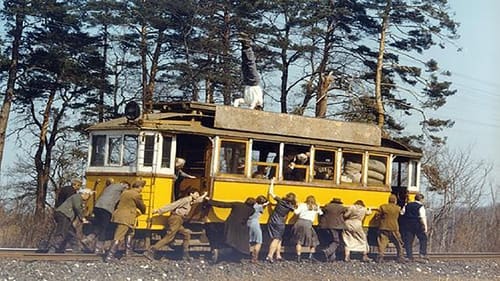
Nanette
"Budapest Tales" is about a group of people (consisting of Szabo regular Andras Balint along with Ildiko Bansagi and Karoly Kovacs) who find a broken down tram while trying to go to the city. The people band together and try to get the tram back on the train tracks and head towards the city. Along this journey the passengers encounter many people who join them on the tram. What started out as only a handful of people has now turned into a small village. As the people travel on to the city each person takes on certain roles and through the course of time these roles will change. Some people fall in love, others out of love, and a few even die. But life goes on. The people keep the tram going hoping to reach Budapest.

Angéla

Liza

Viktor modellje

Keksz
This absurd story, bordering on the drawing-room comedy, portrays the practices of abusing power and the insolence of bureaucracy through the revolting of a young designer-engineer of the Railway Tilting Examination Board. The ambitious Pócsik works persevearingly on how to compensate for the tilting of railway carriages in bends. His jealous bosses, however, use their best efforts to block the development of an innovation.

Brigitta
A musical farce about women in the canning factory. The pretty Brigitta tries to commit suicide, because Laci left her, pregnant, but her mates save her.

István and Jakab are fire-extinguisher experts. They travel the country to check fire-extinguishers at country factories. During their tours of inspection they chase women, drink in dirty pubs and live in clover.

The events of the story take place in the outskirts of working class people in the early nineteen fifties. Makra, a skilled worker in a factory, suddenly comes to close quarters with everything around him because his environment condemns and ridicules him for protecting a woman when his drunk fellows were going to rape her after his bachelor party.

Mária
Based on the stories of Hungarian writer Gyula Krúdy, this iconic film is a lush and sensuous depiction of the life, loves and memories of serial seducer Szindbád.

Ida
The heroines of this lyric comedy full of burlesque elements are two girls from a village who get totally engrossed in their day-dreaming. Ida and Rozi escape to the city to catch husbands for themselves.
































